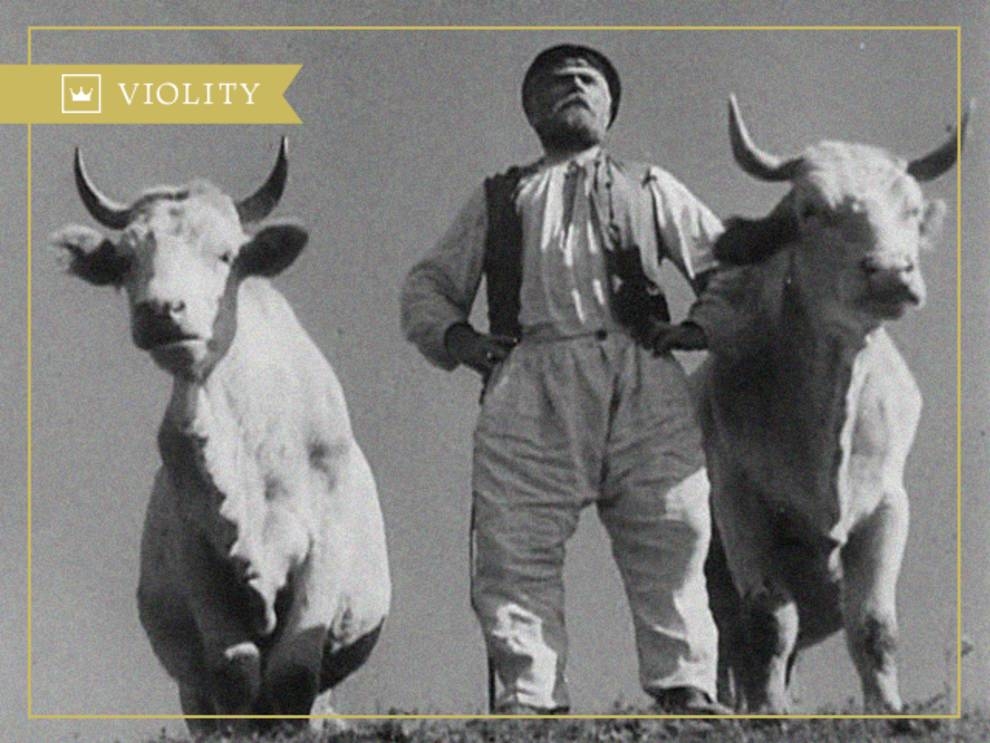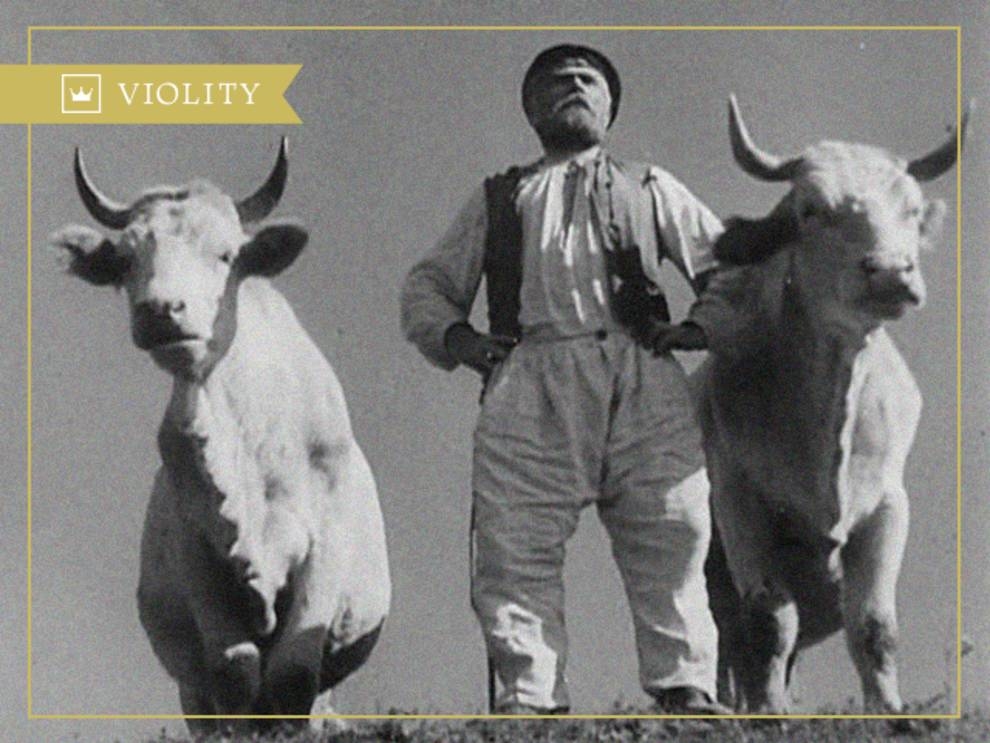
"Earth" by Alexander Dovzhenko
April 8, 1930 in Kharkov, the premiere of the picture of Alexander Dovzhenko "Earth". In 1958 at the World Exhibition in Brussels, she was included in the list of 12 best films of all time.
The first real success of Dovzhenko-director was the tape "Zvenigora", released in hire in 1928. The script for it was written by Mike Johansen and Yuri Yurtik. However, Dovzhenko reworked the script, with the result that Johansen dropped his name. The success of Zvenigora abroad brought Dovzhenko worldwide recognition, but in the USSR the picture was perceived rather cool, because the general public did not always understand the symbolism and composition of the picture. A similar situation was with the picture "Earth".
Shooting this film, Dovzhenko essentially fulfilled the party order and had to show the success of collectivization. Such high confidence from Joseph Stalin, Dovzhenko received after the release of the film "Arsenal", which quarreled with a significant part of the Ukrainian intelligentsia, in particular, one of his teachers - Les Kurbas.

In the last tape of his silent trilogy, Dovzhenko was both a director and a screenwriter. She starred near the village of Yareski (Shishatsky district, Poltava region) for five months with the participation of leading Ukrainian actors of the time - Stepan Shkurat, Semyon Svashenko, Nikolay Nademsky. Before going to the big screen at the premiere on April 8, 1930 in Kharkov, it was revised 32 times in closed shows by party functionaries and critics. But neither careful ideological control by the party, nor success abroad, saved the picture from the ban: on April 17 it was removed from the demonstrations with the phrase “for naturalism and an attempt on customs”.
Despite the glorification of collectivization, which in the “Earth” symbolizes the appearance of the first tractor in the village, Dovzhenko very poeticly described the traditional world of Ukrainian village, the beauty of nature and the rural life of the pre-industrial era.
Despite this, in Europe the tape "Earth" was accepted with approval, although it was considered propaganda. In 1930, she was recognized as the best foreign film by the US National Council of Film Critics, and in 1958 at the World Exhibition in Brussels (Belgium), according to a survey of 117 critics and film critics from 26 countries of the world, was among the 12 best films of all times and peoples.
December 8, 2015 "Earth" entered the list of world masterpieces of world cinema, compiled by UNESCO.
The first real success of Dovzhenko-director was the tape "Zvenigora", released in hire in 1928. The script for it was written by Mike Johansen and Yuri Yurtik. However, Dovzhenko reworked the script, with the result that Johansen dropped his name. The success of Zvenigora abroad brought Dovzhenko worldwide recognition, but in the USSR the picture was perceived rather cool, because the general public did not always understand the symbolism and composition of the picture. A similar situation was with the picture "Earth".
Shooting this film, Dovzhenko essentially fulfilled the party order and had to show the success of collectivization. Such high confidence from Joseph Stalin, Dovzhenko received after the release of the film "Arsenal", which quarreled with a significant part of the Ukrainian intelligentsia, in particular, one of his teachers - Les Kurbas.

Photo © jnsm.com.ua
In the last tape of his silent trilogy, Dovzhenko was both a director and a screenwriter. She starred near the village of Yareski (Shishatsky district, Poltava region) for five months with the participation of leading Ukrainian actors of the time - Stepan Shkurat, Semyon Svashenko, Nikolay Nademsky. Before going to the big screen at the premiere on April 8, 1930 in Kharkov, it was revised 32 times in closed shows by party functionaries and critics. But neither careful ideological control by the party, nor success abroad, saved the picture from the ban: on April 17 it was removed from the demonstrations with the phrase “for naturalism and an attempt on customs”.
Despite the glorification of collectivization, which in the “Earth” symbolizes the appearance of the first tractor in the village, Dovzhenko very poeticly described the traditional world of Ukrainian village, the beauty of nature and the rural life of the pre-industrial era.
Despite this, in Europe the tape "Earth" was accepted with approval, although it was considered propaganda. In 1930, she was recognized as the best foreign film by the US National Council of Film Critics, and in 1958 at the World Exhibition in Brussels (Belgium), according to a survey of 117 critics and film critics from 26 countries of the world, was among the 12 best films of all times and peoples.
December 8, 2015 "Earth" entered the list of world masterpieces of world cinema, compiled by UNESCO.


